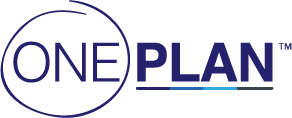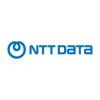Quality Analyst
Sandton, Johannesburg, South Africa
Job Description
This role involves diverse duties and responsibilities to ensure that all aspects of production meet or exceed established quality standards. The primary goal of a QA is to identify areas that need to be improved and work towards enhancing the overall quality, ensuring customer satisfaction and compliance with regulatory standards.
Analyzes Statistical Data
- Analyzes statistical data related to production processes and product quality. This involves interpreting data from various sources to identify trends, variances, and areas of improvement.
- Conducting regular quality assurance audits is a key responsibility. This involves evaluating various stages of production, processes, and final outputs to ensure they meet predefined quality standards
- Developing, reviewing, and updating quality standards is critical. A QA works to establish clear benchmarks for quality that are aligned with customer expectations and industry norms.
- Creativity in developing and refining testing processes is vital. This includes designing tests that assess product or service quality, efficiency, and performance.
- Data regarding product quality and process efficiency must be continuously monitored. Reporting these findings to relevant stakeholders helps make informed decisions about improvements and corrections.
- Ensuring that the end product or service meets or exceeds user expectations. This involves understanding customer needs and ensuring the quality benchmarks align with those needs.
- QA analysts work towards continuous improvement of products. Identifying shortcomings and potential enhancements contributes to product development and refinement.
- QA also recommends solutions to rectify them, ensuring they are addressed promptly and efficiently.
- Proper documentation of test plans, procedures, results, and improvement recommendations is crucial for tracking progress and ensuring accountability.
- Ensuring that products and processes comply with local, national, and international regulatory requirements is a key responsibility. This involves staying updated on relevant regulations and implementing necessary changes.
- Bachelor's degree in quality management, Business Administration, Engineering, etc. or equivalent professional experience.
- 3-5 years of experience in a quality assurance role, preferably within the Insurance industry or financial sector.
- Good knowledge of the Consumer act and Popi act
- Familiarity with quality standards and regulations relevant to the Insurance industry or financial sector.
- Experience with quality assurance software and tools is a plus
- must possess excellent analytical skills to identify potential risks and vulnerabilities in software applications.
- They should be able to break down complex systems into smaller components, analyze the dependencies between them, and anticipate potential issues that may arise.
- A keen eye for detail is crucial for QA analysts.
- They must meticulously review software requirements, test plans, and test cases to ensure that all aspects of the application are thoroughly evaluated.
- Identifying even the smallest deviations from expected behavior can prevent major issues. Excellent Communication Skills:
- Effective communication is key for QA analysts to collaborate with developers, product managers, and other stakeholders.
- They need to clearly articulate their findings, report bugs, and provide feedback in a concise and actionable manner.
- Additionally, good communication skills foster a collaborative environment and facilitate the resolution of issues efficiently.
- QA analysts encounter various challenges during the software testing process.
- They must possess strong problem-solving abilities to identify the root causes of issues, propose potential solutions, and work with the development team to implement necessary fixes.
- A proactive and analytical mindset is crucial for effectively addressing complex problems.
- QA analysts should be well-versed in various testing techniques to ensure comprehensive coverage.
- This includes functional testing, usability testing, performance testing, security testing, and more.
- Familiarity with test automation frameworks and tools can also enhance their efficiency in executing repetitive test cases.
- QA analysts must document their testing processes, findings, and recommendations accurately and comprehensively.
- Well-written test plans, test cases, and defect reports ensure effective communication and enable easy replication of identified issues.
- Proper documentation also facilitates knowledge transfer and helps maintain a reliable testing environment.
Beware of fraud agents! do not pay money to get a job
MNCJobs.co.za will not be responsible for any payment made to a third-party. All Terms of Use are applicable.
Job Detail
-
Job IdJD1445428
-
IndustryNot mentioned
-
Total Positions1
-
Job Type:Full Time
-
Salary:Not mentioned
-
Employment StatusPermanent
-
Job LocationSandton, Johannesburg, South Africa
-
EducationNot mentioned



